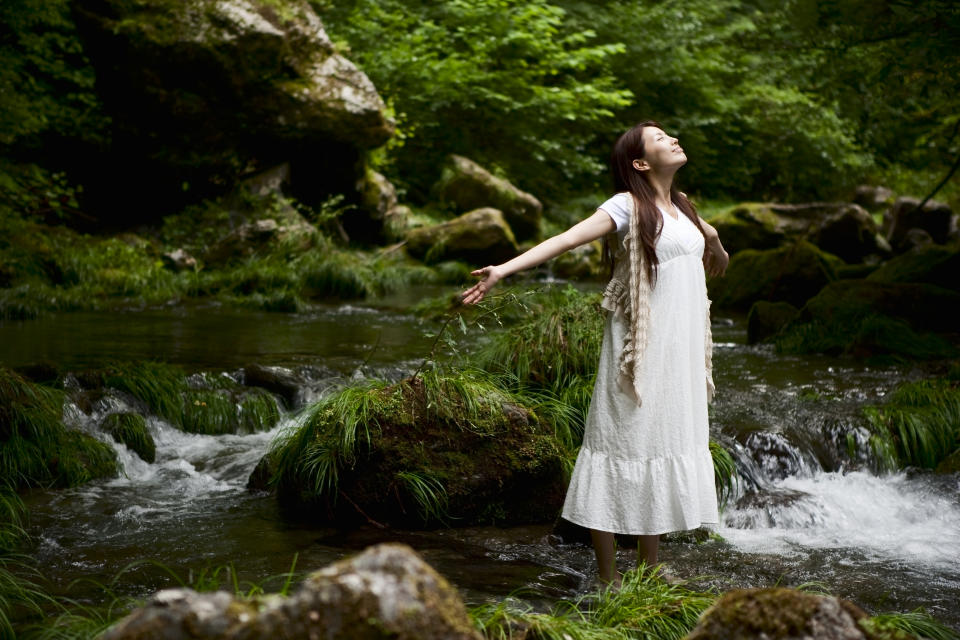As NHS says it will not prescribe 'forest bathing', which alternative therapies are currently offered by GPs?
A debate has broken out over whether “forest bathing” should be suggested by GPs as a form of therapy, with the NHS confirming it has no plans to formally introduce the practice.
Forest bathing, known as shinrin-yoku in Japan where it originated, is the practice of immersing yourself in nature in order to improve your wellbeing. Earlier this month, the Woodland Trust suggested the treatment should be prescribed by the NHS.
The matter was hotly debated earlier today on ‘Good Morning Britain’, with interior Anna Ryder Richardson saying she swears by the practice.
Meanwhile, British counsellor and former presenter Annabel Giles ridiculed the notion, saying: “Forest bathing is what we used to call going for a walk.”
READ MORE: Forest bathing just might be the summer’s version of hygge
“Some people want to formalise [forest bathing], charge £25 for two hours,” she later added.
The NHS has since denied there are any plans to introduce forest bathing, although it does offer a range of “social prescribing” schemes whereby patients are referred to a “link worker” to help them discover a holistic approach to their health and wellbeing.
“This particular practice is not known to be part of any social prescribing schemes supported by the NHS,” a spokesperson told Yahoo UK.

But what other alternative therapies are recommended by the health service?
Complementary and alternative therapies
Although the NHS is predominantly focussed on mainstream healthcare, in some circumstances it does offer treatments that fall outside of this, according to the body’s website.
READ MORE: Psychiatrists urged to ask under-18s about social media use
These are known as Complementary and Alternative Medicines (CAMs), and can include:
Homeopathy
Osteopathy
Chiropractic
Herbal medicines
Complementary medicines are those used together with conventional medicine, whereas alternative medicines are used instead of conventional medicine.
![Acupuncture is among the complementary and alternative therapies occasionally offered by the NHS. [Photo: Getty]](https://s.yimg.com/ny/api/res/1.2/U1brUQUr9dgHXXzX2fjXsQ--/YXBwaWQ9aGlnaGxhbmRlcjt3PTk2MDtoPTY0MA--/https://media-mbst-pub-ue1.s3.amazonaws.com/creatr-images/2019-06/57ae2610-99b2-11e9-bfad-22c0a74963d8)
Some treatments can fall into both categories – for instance, aromatherapy.
The use of CAMs under the NHS is “limited”, but examples include:
The Alexander technique for Parkinson's disease
Ginger and acupressure for reducing morning sickness
Acupuncture for a frozen shoulder
Aromatherapy as support for cancer
While some may prefer to stick to conventional healthcare, there is a growing body of scientific evidence to support certain alternative therapies.
For instance, researchers from Western Sydney University and the University of Auckland have found that the ancient Chinese practice of acupuncture can significantly reduce the severity and duration of period pain.


